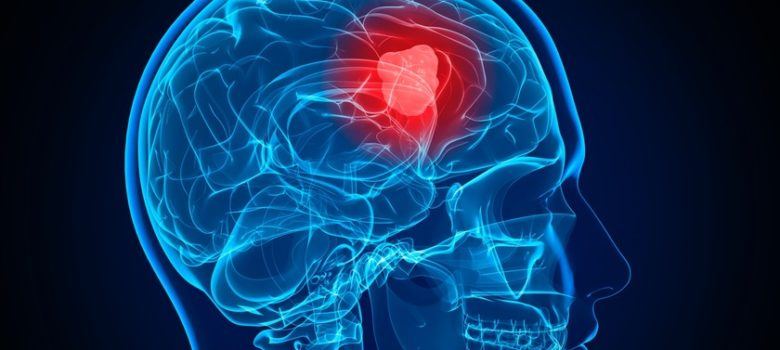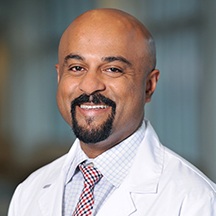

Clinical Trial Results for World’s First Glioblastoma Vaccine
by Amelia Garrison
Renowned neuro-oncologist Santosh Kesari, MD, PhD, is one of the authors of a phase 3 trial that found that the use of an autologous tumor lysate-loaded dendritic cell vaccine (DCVax-L) added to the standard of care (SOC) treatment of both newly diagnosed glioblastoma and recurrent glioblastoma extended survival of patients.
In a groundbreaking study, the clinical trial results from the world’s first vaccine to treat glioblastoma were published today, November 17th, 2022, by the Journal of the American Medical Association Oncology. Co-authored by Santosh Kesari, MD, PhD, renowned neuro-oncologist and Director of Neuro-oncology at Pacific Neuroscience Institute® (PNI) and Saint John’s Cancer Institute in Santa Monica, CA, the results from the clinical trial offer the potential to extend patient survival from the most aggressive form of brain cancer, glioblastoma.
How common is glioblastoma?
Glioblastoma is the most commonly occurring malignant primary brain tumor, representing about 50% of all primary malignant tumors of the central nervous system. Unfortunately, the average survival rate is poor — 14.6 months after diagnosis. It is anticipated that over 16,000 Americans will succumb to the disease this year.
Rates of incidence are rising. In the United States, it is anticipated that over 12,000 Americans will receive a new diagnosis for glioblastoma this year alone, with contributing factors including ionizing radiation and air pollution, among others.
Countries across the globe are also experiencing higher rates of glioblastoma, with areas in Southern and Eastern Europe, and South America experiencing the most significant increase.
While survival rates for glioblastoma remain low, developments in clinical trial research offer a beacon of hope.
How does the new glioblastoma vaccine work?
As the first new treatment for glioblastoma in almost two decades for patients with newly diagnosed glioblastoma and almost three decades for patients with recurring glioblastoma, the DCVax vaccine developed by Northwest Biotherapeutics, Inc., the US-based biotechnology company developing the vaccine, is a breakthrough for glioblastoma patients and their families.
Like all vaccines, DCVax is a form of immunotherapy. Vaccines work by teaching our bodies to recognize dangerous pathogens. Small, weakened, or dead parts of a pathogen, collectively known as antigens, are introduced to the body, triggering the body’s natural immune response without causing illness.
In response to a vaccine antigen, the body issues specialized immune system cells called T and B lymphocytes, or T and B cells. These T and B cells become active so that if we were to encounter these pathogens in the future, our body’s immune response system will immediately recognize the invaders and protect us.
DCVax is created by individual brain tumor cells of a glioblastoma patient. Researchers collect proteins from the patient’s brain tumor and combine them with the patient’s white cells. In turn, the patient’s white cells are taught to recognize the brain tumor as a dangerous pathogen, prompting an immune response to track and attack the brain tumor once administered.
How long is survival for glioblastoma patients who receive the new vaccine?
The clinical trial found that participants with recurrent glioblastoma who received the vaccine lived on average for 13.2 months after receiving it, compared with 7.8 months for those who did not.
For newly diagnosed glioblastoma patients, the clinical trial researchers found that the participants who received the vaccine survived for 19.3 months, compared to 16.5 months for those who received a placebo.
Is the new vaccine FDA-approved?
Although the vaccine is not yet available in mainstream medicine, Northwest Biotherapeutics, Inc., is planning to seek approval to make it available.
About Pacific Neuroscience Research Center

At Pacific Neuroscience Research Center, teams of clinicians and researchers are pushing the final frontier in medicine forward. Seeking efficient drug delivery into brain tumors. Conducting trials on early detection, intervention, and disease progression in Alzheimer’s disease. Stem cell therapy for dementia and brain health conditions. While conventional malignant brain tumor treatment remains disappointing, a truly novel clinical trial dedicated to stopping the most aggressive of brain tumors is available at PNI. Center Director, Dr. Santosh Kesari and his team are using immunotherapy and targeted molecular therapies first, to avoid the side effects of upfront brain radiation.
More information: 310-520-7450
About Dr. Santosh Kesari

Neuro-oncologist Dr. Santosh Kesari, MD, PhD, is a board-certified neurologist and is currently Chair and Professor, Department of Translational Neurosciences, Saint John’s Cancer Institute. He is the regional medical director of Providence Southern California’s Research Clinical Institute. Dr. Kesari is also Director of Neuro-oncology at Pacific Neuroscience Institute, Providence Saint John’s Health Center, and Providence Little Company of Mary Medical Center Torrance, and leads the Pacific Neuroscience Research Center at Pacific Neuroscience Institute.
Useful Links
About the Author

Amelia Garrison
Amelia Garrison is the Marketing Specialist at Pacific Neuroscience Institute (PNI). Well versed in community outreach strategy and implementation, she leads the PNI blog, newsletter, and digital communications. Amelia oversees PNI's reputation management and community sponsorships.
Last updated: August 9th, 2023